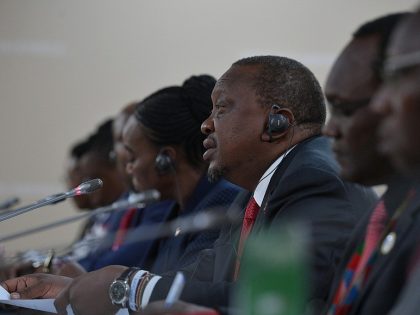
Solidarity under quarantine
Nelson Mandela's life teaches us that being quarantined is not the end of politics, but for the regeneration of politics.

Nelson Mandela's life teaches us that being quarantined is not the end of politics, but for the regeneration of politics.

Malawi is experiencing a crisis over the legitimacy of the democratic state itself.

In South Africa, social distancing to bring down COVID-19 infections takes a decidedly local shape. In a racialized society, it manifests primarily as white melancholia and black Afro-pessimism.

Relationships between African countries and China are more complex than they appear in the media and academia.

Will the coronavirus pandemic extend Museveni’s authoritarianism or the lockdown instead provide openings for Uganda’s opposition?

Kenyans are split about the legacy of president Daniel Arap Moi, who served from 1978 to 2002 and died on 4 February 2020: Vile and reprehensible vs a benign Baba, history suggests the latter.

How partisanship distorts the construction and narration of public memory about historical events, especially the resistance against apartheid.

The Ramaphosa Presidency has been praised for its handling of the coronavirus pandemic, but the compensating measures that accompany it are inadequate to protect much of the population.

While COVID-19 hasn't yet hit African cities as hard as those in the global North, it will eventually likely penetrate deep into the countryside where the most vulnerable live and where health facilities are rudimentary.

Are the international community and the African Union really powerless to stop the fratricidal war in Cameroon, or are they just indifferent?

Few things are going on as normal during the COVID-19 pandemic. Unfortunately, political dysfunction in Lesotho continues, with negative ramifications for Basotho.

How can a fragmented and precarious working class unite against exploitative labor relations and, in the process, transform them?

Pentecostalism in Nigeria preaches that prayer, not political action, is the solution to COVID-19.

Responding to the COVID-19 pandemic, African governments should stop seeing non-governmental actors as a threat to their own legitimacy.

With their government obsessed more with control of information than COVID-19 itself, Tanzanians are bracing for the worst.

Preocupado em atrair investimentos estrangeiros e combater à corrupção ao administrar uma divisão no partido no poder, o presidente angolano João Lourenço ignora o seu aliado mais forte: a sociedade civil jovem.

Preoccupied with attracting foreign investment and fighting corruption while managing a split in the ruling party, the Angolan president João Lourenço ignores his strongest ally: youthful civil society.

Race reductionism is stunting the possibility for radical change in an ever unequal South Africa.

Black Americans are not a unified voting bloc, and it is time to start paying attention.

COVID-19 has been used to justify xenophobia and anti-Asian racism, but a white South African woman’s hoarding behavior illustrates the global anti-black and anti-poor response to crises.